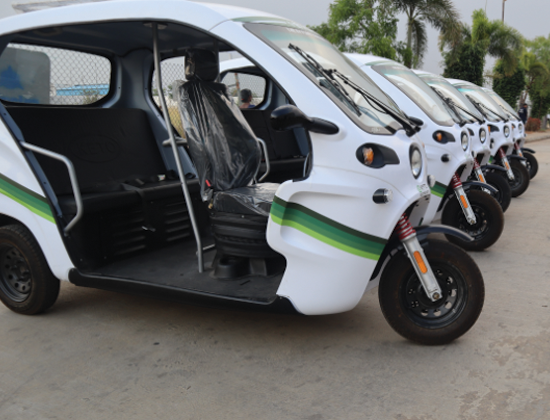
NEW DELHI: To improve last-mile connectivity, the transport department has decided to push for electric autos with geofencing so that they remain in the designated zones to cater to the areas that are not well connected by different modes of transit.
Delhi transport commissioner Ashish Kundra said the department had issued 700 permits to Delhi Metro Rail Corporation (DMRC) for such autos. “These would be electric autos with geofencing so that they remain in a fixed geography… to improve the free last-mile connectivity.” Depending upon the response in different operation areas, the service will be scaled up, he added.
The geofencing technology creates a virtual geographic boundary around an area by means of GPS or RFID technology, enabling a software to trigger a response when a mobile device enters or leaves its designated area.
Currently, ETO Motors has partnered with DMRC to deploy 36 women-driven e-autos from Azadpur Metro Station. The company will add 250 e-autos, including 100 in the next two months, and develop parking and charging hubs in Kalkaji, Uttam Nagar, Dwarka and Majlis Park Metro stations, an official said, adding that these autos run in a radius of 7km.
Similarly, SUN Mobility is running around 200 electric three-wheelers with swappable batteries at eight Metro stations in Dwarka. Its vice-president of sales and marketing, Rajat Malhan, said the company would seek permission from the transport department to add 550 vehicles in Rohini and south Delhi areas. “If an auto crosses the five-to-seven-kilometre distance, the driver is altered,” he said.
The geofencing technology will restrict the movement of auto drivers who often tend to gather mostly in the well connected areas that give them more passengers. “This sometimes leads of lack of resources in some areas. Geofencing helps ensure that the last-mile connectivity is taken care of in every corner,” said a government official.
The push towards e-autos is part of the government’s initiative to encourage EV adoption under Delhi’s electric vehicle policy 2020. Since the launch of the policy, Delhi has registered 93,239 e-vehicles till December 31, 2022. Out of these, 5,189 got registered in 2020 since August 7, 25,809 in 2021 and 62,241 in 2022.
“Women are being brought at the forefront of the EV transition by reserving 33% out of the 4,261 e-auto permits for them and pushing for an improved public transport by including zero-smoke, pollution-free 100% electric buses in the city,” Delhi government said recently while showcasing its work on electric vehicles.
Also Read:
